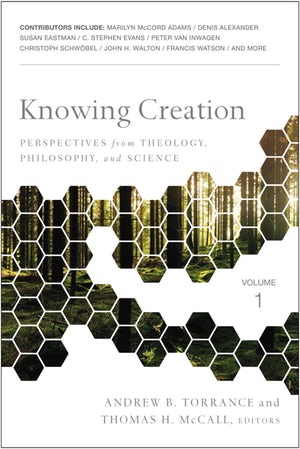Christ and the Created Order: Perspectives from Theology, Philosophy, and Science, reviewed by Stephen Vantassel
Richard Bauckham’s article, “Gospel Narratives and the Psychology of Eyewitness Memory” is the second article in the biblical and historical perspectives section. Bauckham contends that arguments claiming that eyewitness testimony (as found in the Gospels) cannot be trusted is simplistic and fails to recognize that not all memory stories suffer challenges of accuracy equally. His discussion is superb for its focus, brevity, and attention to recent psychological research. I suggest this article alone is a must-read.
Erin Heim’s, “In Him and Through Him from the Foundation of the World: Adoption and Christocentric Anthropology” explores Paul’s use of adoption language. She shows that when Greco-Roman adoption practices are understood, Paul’s use of adoption language for the people of God stands in remarkable contrast, underscoring God’s graciousness, while maintaining God’s qualitative uniqueness along with Christ’s status. She contends that adoption metaphors can help the western church better appreciate the Orthodox theology of theosis. Readers will also find that her argument has implications for the Church’s understanding of gender roles as they relate to Church government.
The book’s final section, Scientific Perspectives, concludes with Ruth M. Bancewicz’s article “The Scientist-Believer: Following Christ as We Uncover the Wonders of the Living World” where she reaffirms the teaching that all Christian activities, including our labor, is to be done to the glory of God. Using personal stories from several researchers, Bancewicz shows that Christian scientists do not have to leave their faith at the door of the laboratory.
Readers should be aware that some authors leaned toward a sort of mysticism as they endeavored to baptize their scientific thinking with theological meaning. Awe of God’s workings in the Cosmos is certainly an appropriate response, and who better informed to be awed than a scientist, but at times the conversation felt a bit too non-rational. Some authors showed an overreliance on sacramental language related to the Lord’s Supper. As a non-sacramentalist, I found it odd that scientists would read realism in the Lord’s Supper but read Genesis 1-2 as metaphorical. How that hermeneutical stance was grounded was unfortunately never explained by any of the authors that used it. Likewise, authors who agree with evolution (which needs death to work) would complain about the suffering in the world. It never seemed to occur to those writers that if death and suffering were problems then how would God’s use of evolution fit into that? As I argued in, Dominion over Wildlife? An Environmental-Theology of Human-Wildlife Relations, animal suffering is not necessarily a moral problem as Adam and Eve were to express dominion over animals prior to the Fall. But if the authors believe that animal suffering is a problem then how does that square with their acceptance of evolution? Unfortunately, they did not provide an explanation.
Like all collections of articles sourced from a variety of authors, quality is uneven. Nevertheless, graduate students, well-read and educated laypersons, and specialists interested in the relationship between Christian faith and science will likely find something in each article that will either inform, challenge, or instigate further thought.
Reviewed by Stephen M. Vantassel
Preview Christ and the Created Order: https://books.google.com/books/about/Christ_and_the_Created_Order.html?id=z4EoDwAAQBAJ
Publisher’s page: https://www.zondervan.com/9780310536086/christ-and-the-created-order/
Further Reading:
 Read Stephen Vantassel’s review of Andrew B. Torrance and Thomas H. McCall, eds., Knowing Creation: Perspectives from Theology, Philosophy, and Science, Volume 1 (Zondervan, 2018).
Read Stephen Vantassel’s review of Andrew B. Torrance and Thomas H. McCall, eds., Knowing Creation: Perspectives from Theology, Philosophy, and Science, Volume 1 (Zondervan, 2018).


